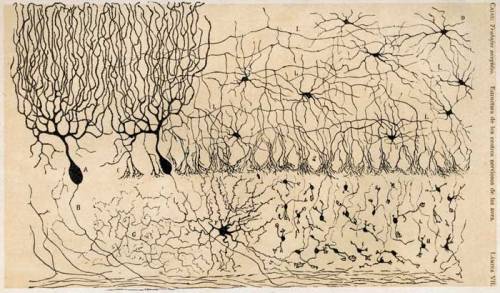I read my school's student newspaper and had to say something in reference to one of the articles. This well-intended article included advice from various students on how to handle the upcoming Valentines Day. The only problem is that I believe most often advice of this sort, in general, doesn't work. Here's why.
Typically the person giving the advice thinks he or she has the answer, but the problem about this wonderful phase of life is that there is no formula. The dilemma is that life cannot be solved like a math problem. The thing is, if the answers could be solved by anyone knowing the equations, it would be quite boring.
One reason why I'm not a fan of Valentines Day is because it seems to be the time of year that people become even more eager to give you their advice on love (and believe me, I get plenty of that from day to day anyway). Take the newspaper for instance. Every year newspapers are flooded with articles like the one I read in my school paper. These are the kinds of themes that are always repeated:
Guys are like this. They appreciate this and don't appreciate that.
Girls are like this. They appreciate this and don't appreciate that.
While there may be some commonalities within the sexes, I think it's rather silly to put every guy or girl under the same umbrella. For instance, I often hear something like, "Guys aren't very subtle and aren't very good at picking up on hints." True, typically guys are not quite as good as girls, but that doesn't mean that all men are completely dense about these things. Here was one of my favorites from the article written by a dude: "Girls shouldn't give guys a homemade valentine because we'll just throw it away the next day." Whoever wrote that might not be very sensitive, but I know plenty of guys that are. There are some men who aren't afraid of showing a little sensitivity.
I also know a number of girls who aren't your typical cookie-cutters either. Trying to be all corny and cutsy with them will only make them laugh (and no, that is not an "oh you're so cute" kind of laugh).
There may be some people who really could use Dr. Love's advice because they might be completely clueless about these sorts of things. Personally, I think all it takes is getting to know a person. I believe you'll know what to do when you've spent enough effort trying to figure out what he/she really appreciates.
So, unless I ask for it, I don't want your advice.

Monday, February 14, 2011
Monday, February 7, 2011
And you thought science was boring...
There once was a man named Ramon y Cajal who studied the brain. He was a rather troubled child and once got in a heap of trouble for blowing up the town gate with a canon he made himself (at age eleven mind you). Besides science he also loved painting.
He painstakingly spent hours staining nerve cells so he could then spend days staring at them under a microscope. As he observed their every detail, he would make drawings of all the cells and nerve connections he saw. We owe a lot of what we know about the microscopic anatomy of the brain because of his efforts.
He also studied how nerve cells develop in a fetus and hypothesized theories we use today. Back when scientific writing was free from its boring, unclear jargon we find in today's journals, he described how nerve cells began and finished their developmental growth into mature circuits.
He wrote about how nerve cells grow out elongated "finger-like" processes moved by some "mysterious forces" that "precede the appearances of these processes". These fingers start in an area, like the future spinal cord, searching for their final destiny in a specific location (another cell in the brain) which was somehow specified even before the birth of this nerve cell. Thus, the cell begins its journey to find its "soul mate" if you will. Cajal wrote that when the cells arrive at their destination, they get to "finally establish those protoplasmic kisses...which seem to constitute the final ecstasy of an epic love story."
Such a simple and elegant story about our beginnings. Science can indeed be beautiful.
He painstakingly spent hours staining nerve cells so he could then spend days staring at them under a microscope. As he observed their every detail, he would make drawings of all the cells and nerve connections he saw. We owe a lot of what we know about the microscopic anatomy of the brain because of his efforts.
 |
| one of Cajal's drawings |
He also studied how nerve cells develop in a fetus and hypothesized theories we use today. Back when scientific writing was free from its boring, unclear jargon we find in today's journals, he described how nerve cells began and finished their developmental growth into mature circuits.
He wrote about how nerve cells grow out elongated "finger-like" processes moved by some "mysterious forces" that "precede the appearances of these processes". These fingers start in an area, like the future spinal cord, searching for their final destiny in a specific location (another cell in the brain) which was somehow specified even before the birth of this nerve cell. Thus, the cell begins its journey to find its "soul mate" if you will. Cajal wrote that when the cells arrive at their destination, they get to "finally establish those protoplasmic kisses...which seem to constitute the final ecstasy of an epic love story."
Such a simple and elegant story about our beginnings. Science can indeed be beautiful.
Subscribe to:
Posts (Atom)